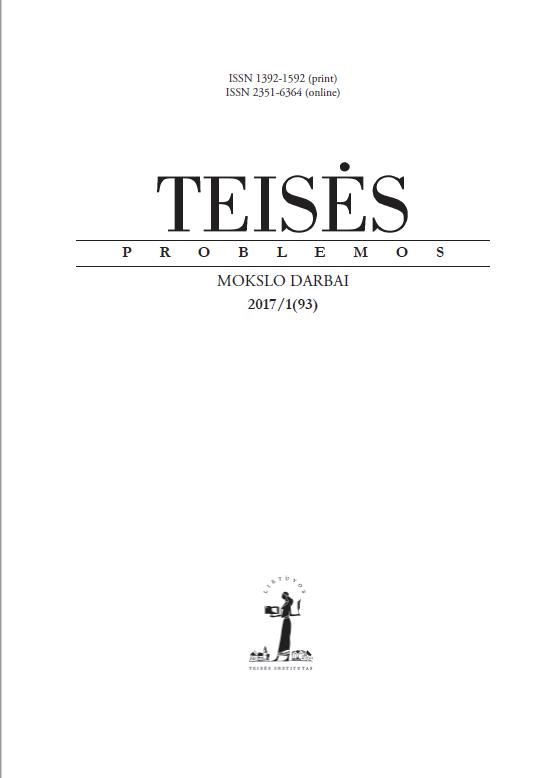Nusikalstamų veikų prevencijos kriminalinėje žvalgyboje samprata ir įgyvendinimo problemos
The Conception of Crime Prevention During Criminal Intelligence and the Problems of Implementation
Author(s): Petras TarasevičiusSubject(s): Law, Constitution, Jurisprudence, Criminal Law
Published by: Lietuvos teisės institutas
Summary/Abstract: The article deals with the issues of the implementation of crime prevention as a task of the criminal intelligence proceeding and the conception of such crime prevention. A particular focus of research is drawn on the identifying the role of the entities of the criminal intelligence in the general crime prevention system.The author is analysing case law and trying to identify main requirements for the justified interfering of human rights and freedoms during the criminal intelligence. The goals of the research are to highlight the existence of the legal issues of the crime prevention during criminal intelligence proceeding. The samples of the case study illustrate that the court during the case study does not control reasonable grounds for the criminal intelligence actions if they are authorized by the judge. Such cases when the judge or public prosecutor authorized the criminal intelligence actions the evaluation of the reasonable grounds legality lays on their unilateral responsibility.However, not at all cases the legality of the reasonable grounds for the implementation of the covert measures used for interfering private life of the individuals can be provable with the existence of such authorization. Authorization of the reasonable grounds or refusing such authorization mostly depends on the evaluation of the information given by the authorities of the entities of the criminal intelligence. Noticeable that during the proceeding of the evaluation the information given by the entities of the criminal intelligence there is some uncertainty related to criteria using by the judge, public prosecutor or officials of the entities of the criminal intelligence. The problems of the crime prevention implementation during criminal intelligence proceeding are emerging when the bylaw juridical regulation of the criminal intelligence does not provide enough grands and criteria for evaluation of the received information. In some cases, decision making is too much-individualized process, particularly when the officials of the entities of the criminal intelligence individually applying unilateral criteria for evaluation of the received or gathered information. It is appropriate to rethink the system of evaluation of the information received or gathered during criminal intelligence proceeding.
Journal: Teisės problemos
- Issue Year: 2017
- Issue No: 93 (1)
- Page Range: 78-99
- Page Count: 22
- Language: Lithuanian

